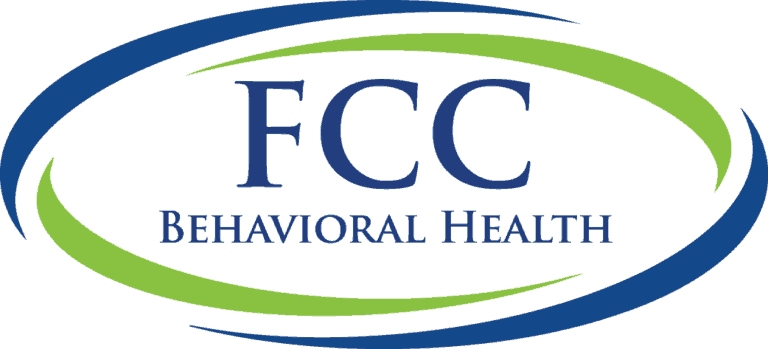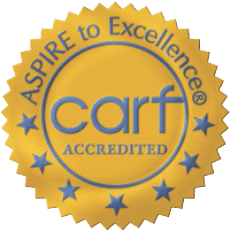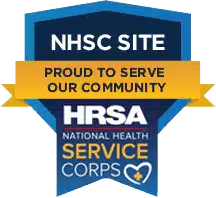Alcohol and Drug Education
Consists of the presentation of general information regarding substances of use, and the application of the information to participants through group discussion designed to promote recovery.
Community Support Services
Community Support services, which consists of specific activities in collaboration with, or on behalf of the person(s)-served, are delivered in accordance with the recovery care plan. Community Support services maximize adjustment and functioning within the community while achieving sobriety and sustaining recovery, maximizing the involvement of natural support systems, and promoting independence and responsibility. Care Coordinators assist the individual in identifying available community resources and services to help them achieve recovery care plan goals. Care Coordinators have a working knowledge of health care, social services, employment, safe housing, recreational opportunities, transportation, and other services and systems available in the community. Care Coordinators also provide educational services regarding various daily living skills such as budgeting, meal planning and personal care. Care Coordinator services are provided in any setting that allows the best access to services. Settings may include the treatment center, medical clinics, schools and/ or community businesses.
Drug Screens
Drug Screens are completed upon intake and sent to laboratory for confirmation. Follow-up testing may be conducted at any time during treatment which could include specimens being sent to the lab for confirmation and/ or an on-site dip screening test. The urine samples are collected according to recognized practice standards by trained staff. Results from drug screens are addressed with the individual once the results are available, in order to intervene with substance use behavior. Test results and actions taken shall be documented in the individual’s record.
Family Involvement
Recovery involves whole families. You will have the opportunity to reflect on changes you will want to address regarding your family. Your family will be invited to visit on Sunday afternoons. You will determine a visitation list with your counselor. Family Counseling will be offered as appropriate.
Group Counseling
Group Counseling is face-to-face, goal oriented therapeutic interaction among a counselor and two (2) or more people as specified in individual recovery care plans designed to promote the individual’s functioning and recovery through personal disclosure and interpersonal interaction among group members. The usual and customary size of group counseling sessions is eight (8) individuals and shall not exceed average of twelve (12) person’s-serviced in order to promote full participation, disclosure and feedback. Specialized group counseling topics include, but are not limited to: Anger Management, Relapse Prevention, gender specific groups, trauma groups and co-occurring specific groups.
Group Education
Group Education consists of the presentation of general information and application of the information to participants through group discussion in accordance with individualized treatment plans which are designed to promote recovery and enhance social functioning. The usual and customary size of group educational sessions shall not exceed thirty (30) person(s)-served.
Individual Counseling
Individual Counseling is a structured, goal-oriented therapeutic process in which the person(s)-served interacts on a face-to-face basis with a counselor in accordance with the individual’s rehabilitation plan in order to resolve problems related to substance use which interferes with the person(s)-served functioning. Various treatment modalities are provided by appropriately trained staff to include, but are not limited to: Motivational Interviewing, Cognitive Behavioral Therapy, Integrated Dual Disorders Treatment and Relapse Prevention Therapy.
Integrated Treatment for Co-Occurring Services
A service which provides counseling to those identified as having both a substance use diagnosis and a mental health diagnosis. Co-occurring issues are integrated into the recovery care plan and are provided by qualified personnel. Co-occurring specific groups are also provided. If it is determined that an individual needs a psychiatric evaluation, this service can be coordinated through the agency telemedicine program. The program is equipped with telemedicine equipment that will allow us to access agency psychiatrists as needed for routine and/ or crisis psychiatry services.
Medication Assisted Treatment (MAT)
MAT is an evidenced based practice that combines pharmacological interventions with substance use counseling and social support. All individuals in services will be educated on available medication assisted treatment interventions. The program will provide staff that are trained and certified in the delivery of Medication Assisted Treatment services.
Nursing Services
Nursing services are provided in order to monitor the overall health and wellness to include medication education; medication efficacy; health education; TB, HIV, STD screenings and preventative education. Primary care needs can be obtained for the person(s)-served through referral and collaboration with community resources.
Peer Support
Peer Support services are person-centered with a recovery focus. Services allow individuals the opportunity to direct their own recovery and advocacy processes. Peer support promotes skills for coping with and managing symptoms while encouraging the use of natural supports and enhancement of community living skills. Services are provided by a Certified MO Peer Specialist.
Recreation/Healthy Living Activities
Designed to promote development of positive leisure time activities to include the involvement in community, social, fitness, cultural, athletic and leisure activities offered as part of the program.



